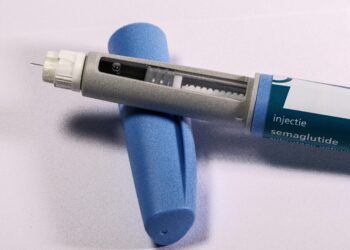In the bustling city of Meadville, a renowned physician named Dr. Andrew Watson practiced medicine. Dr. Watson had spent decades honing his skills to become a trusted and respected member of the medical community.
One fateful day, Dr. Watson unknowingly became the victim of identity theft. An unscrupulous former employee managed to gain access to his personal information and stole his valued medical credentials. Oblivious to this unfortunate incident, Dr. Watson continued his medical practice, treating patients with care and professionalism.
As time went on, some patients who had received treatment from Dr. Watson started to notice irregularities in their medical records and billing statements. Concerned, they alerted the state medical licensing board, suspecting foul play. The board, responsible for ensuring patient safety and maintaining the integrity of the medical profession, launched an investigation.
During their inquiry, the board discovered that Dr. Watson’s credentials had been stolen and were being used by someone else. Shocked and confused, Dr. Watson cooperated with the investigation, providing every piece of evidence and explanation to prove his innocence. He could not fathom how such a terrible thing could have happened.
Unfortunately, despite his earnest efforts to cooperate and clear his name, Dr. Watson faced initial skepticism from the licensing board. They reasoned that as a physician, it was his responsibility to protect his credentials and ensure their safekeeping. They argued that his failure to do so, even unknowingly, cast doubt on his professionalism and trustworthiness.
The board scheduled a disciplinary hearing to determine the appropriate course of action. Dr. Watson, devastated and anxious about his future, sought legal counsel to defend his impeccable reputation. His attorney tirelessly worked behind the scenes, gathering evidence and testimonies to support Dr. Watson’s case.
The day of the hearing finally arrived. Dr. Watson, accompanied by his lawyer, stood before the licensing board, confident in his innocence. The hearing proceeded with intense scrutiny, as both sides presented their arguments and evidence.
Throughout the proceedings, it became evident that Dr. Watson was, indeed, an unfortunate victim of identity theft. The evidence gathered by his legal team convincingly demonstrated that he had no knowledge of his stolen credentials being used to treat patients or engage in any misconduct.
Moved by the overwhelming evidence and Dr. Watson’s reputation as an accomplished physician, the licensing board eventually reached a just decision. They dismissed all disciplinary charges against Dr. Watson, recognizing that he had been a victim in this unfortunate series of events.
Though relieved to finally clear his name, Dr. Watson couldn’t help but reflect on the whole ordeal. He realized the importance of being proactive in safeguarding one’s professional credentials and personal information. In response, he rallied other physicians and medical organizations to raise awareness about identity theft risks and embrace additional measures to protect their documentation and licenses.
Some still choose to not recognize the magnitude of this problem, blissfully ignorant of the legal risks they incur on a regular basis. But more and more, we see physicians standing up and advocating for their rights and privileges, their credentials.
To those physicians who understand the importance of speaking out, but might not know where to speak, let me introduce you to HPEC, or the Humanitarian Physician’s Empowerment Community.
HPEC is a leader in the space of proactively safeguarding medical credentials and licensing information. By decentralizing and automating credentialing related processes, this digital physicians guild can enhance patient safety, maintain professional standards, comply with regulations, prevent fraud, and optimize workforce mobility for the betterment of patient care.
If you value the sanctity of your medical credentials, then join the HPEC movement and support your fellow physicians in taking charge of your medical licensure. Proactively safeguarding a physician’s medical credentials and licensing information is of utmost importance for several reasons.
- Ensuring Patient Safety: The credibility and competence of a physician are directly linked to their medical credentials and licensing. Safeguarding this information helps ensure that patients receive care from qualified professionals who are authorized to practice medicine. It minimizes the risk of patients being treated by individuals with fraudulent qualifications or those who may not meet the required standards.
- Maintaining Professional Integrity: Physicians spend years acquiring medical education and certifications to gain the trust and confidence of their patients. Protecting their credentials and licensing information helps maintain the integrity of the profession. It demonstrates a commitment to ethical behavior and ensures that physicians’ qualifications are accurately represented.
- Regulatory Compliance: Professional licensing and credentials are usually regulated by government authorities or professional bodies. Failing to safeguard this information can lead to legal and regulatory issues. Compliance with licensing requirements is essential to avoid potential penalties, fines, or even the revocation of a physician’s license, which would have severe consequences for their professional practice.
- Fraud Prevention: In today’s digital world, the risk of identity theft and fraudulent activities is ever-present. Medical credentials and licensing information, if not adequately protected, can be susceptible to unauthorized access or misuse. Proactively safeguarding this information helps mitigate the risk of identity theft, credential forgery, or fraudulent medical practices.
- Efficient Workforce Mobility: Safeguarding and coordinating a physician’s credentials and licensing information can streamline the process of relocating or working in different healthcare settings. By ensuring accurate and up-to-date documentation, physicians can seamlessly transition between hospitals, clinics, or even countries, without delays or complications. This promotes workforce mobility, which is crucial for optimized patient care, especially during critical situations or when there is a shortage of healthcare professionals in specific areas.
But the most important reason is that the physician community does not deserve the legal liabilities we are constantly faced with. We can recite the reasons and share the horror stories, but until we act in a way that safeguards all physicians, we will continue to remain at risk.
I choose to act. HPEC protects physicians where they are most vulnerable.
I hope you choose HPEC as well.
















